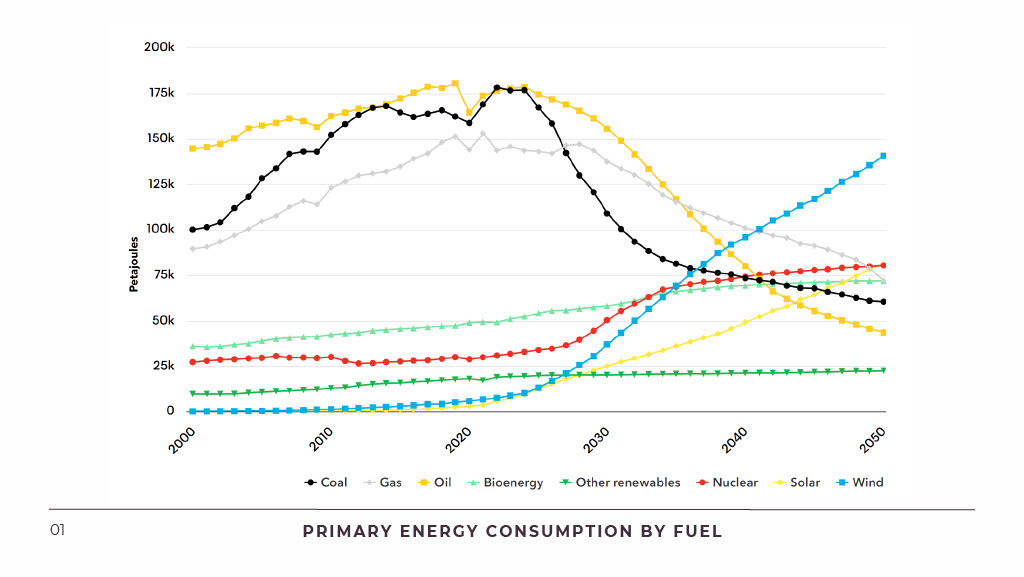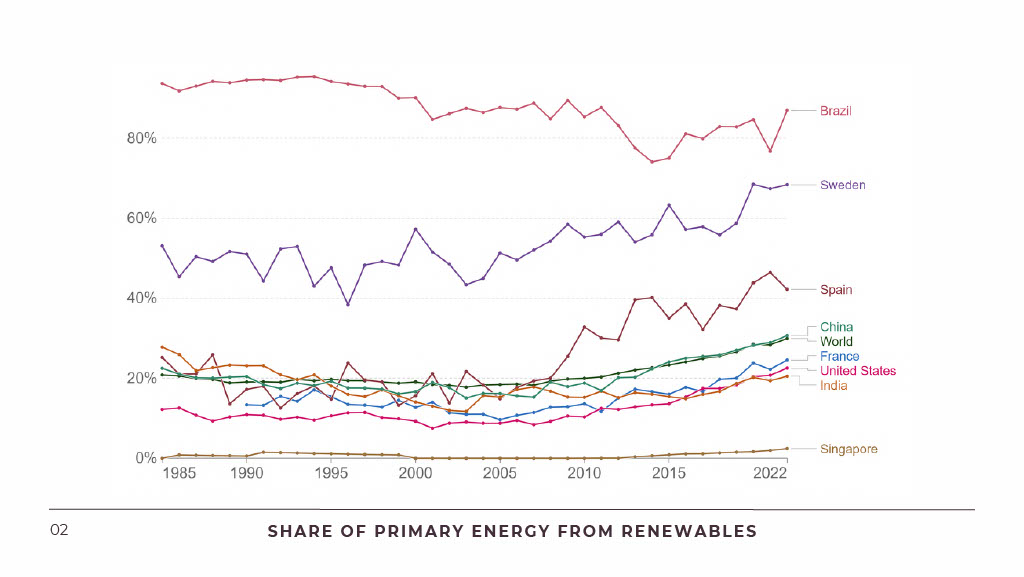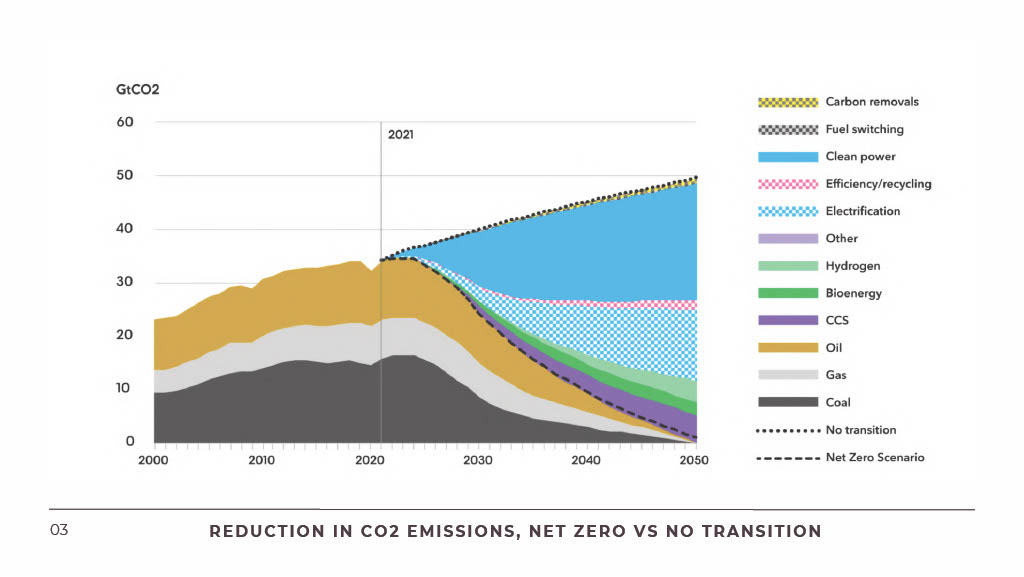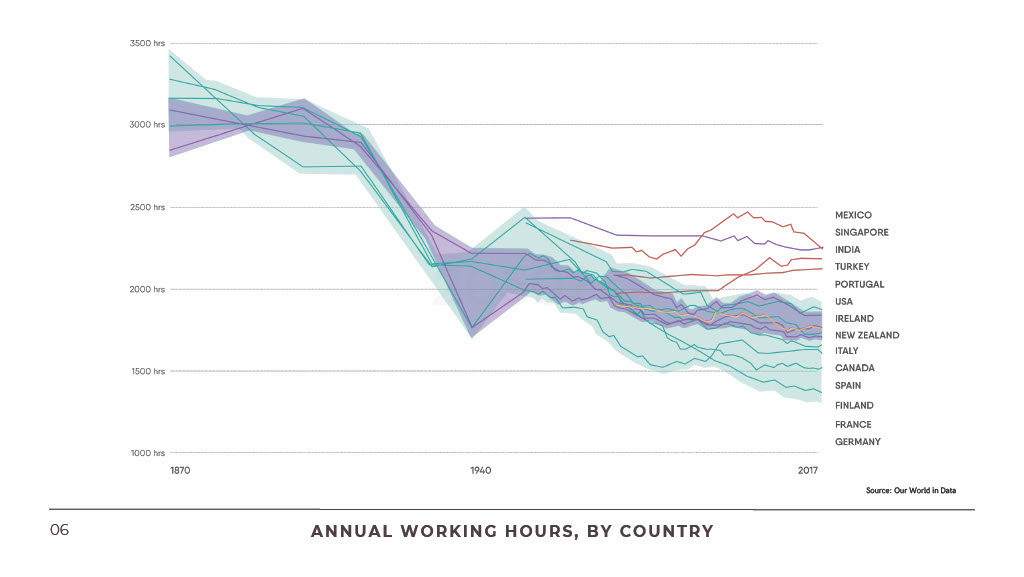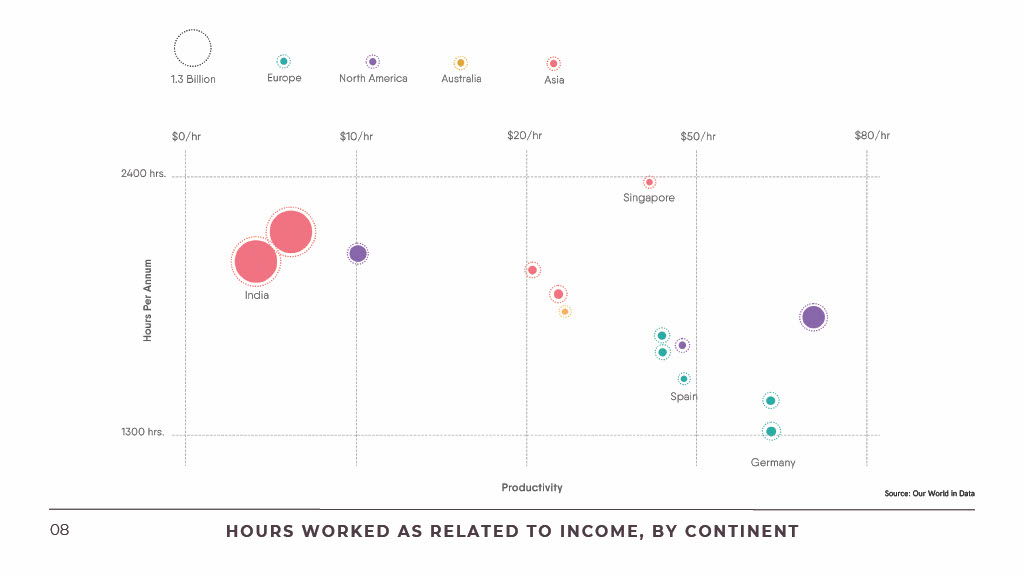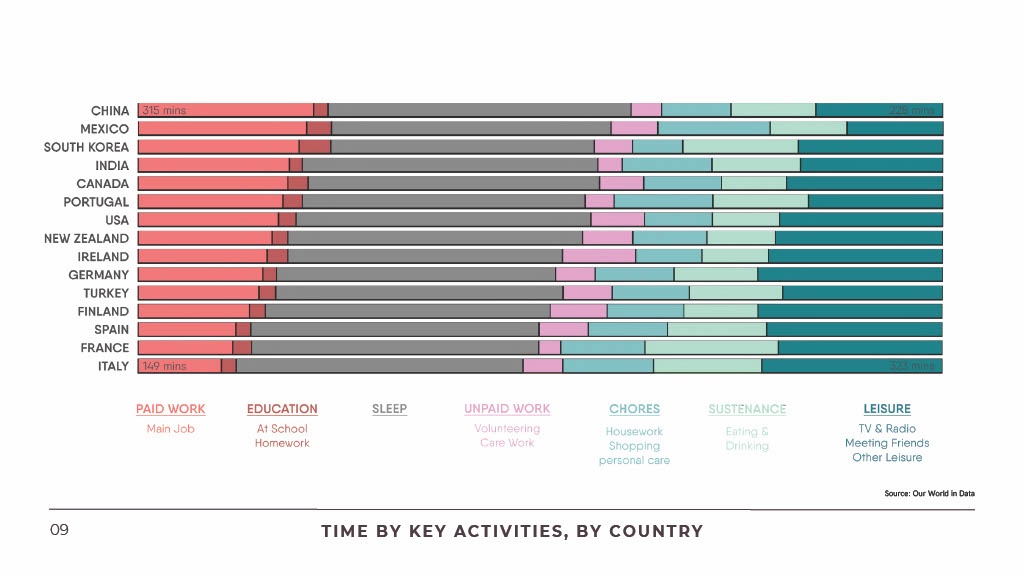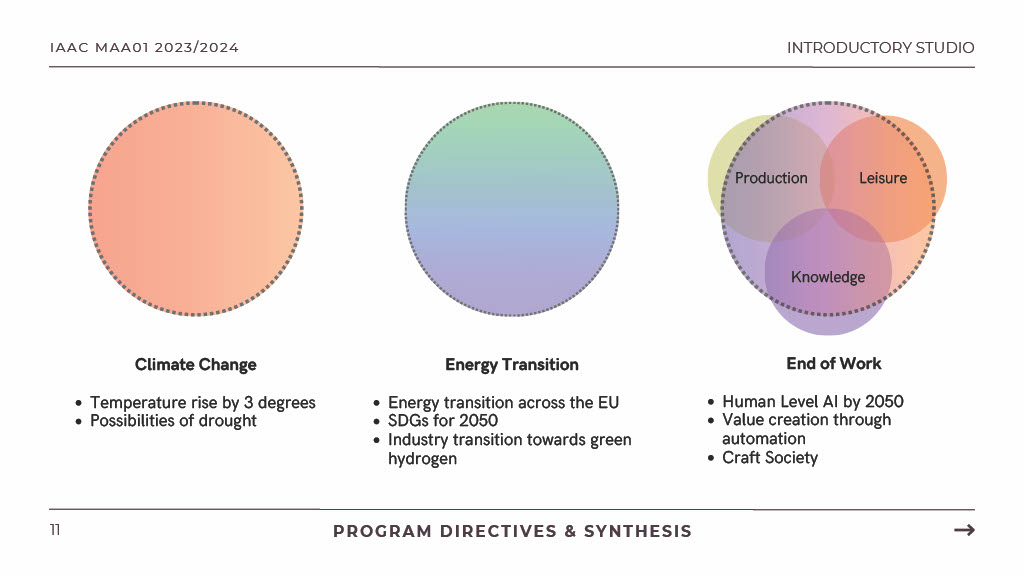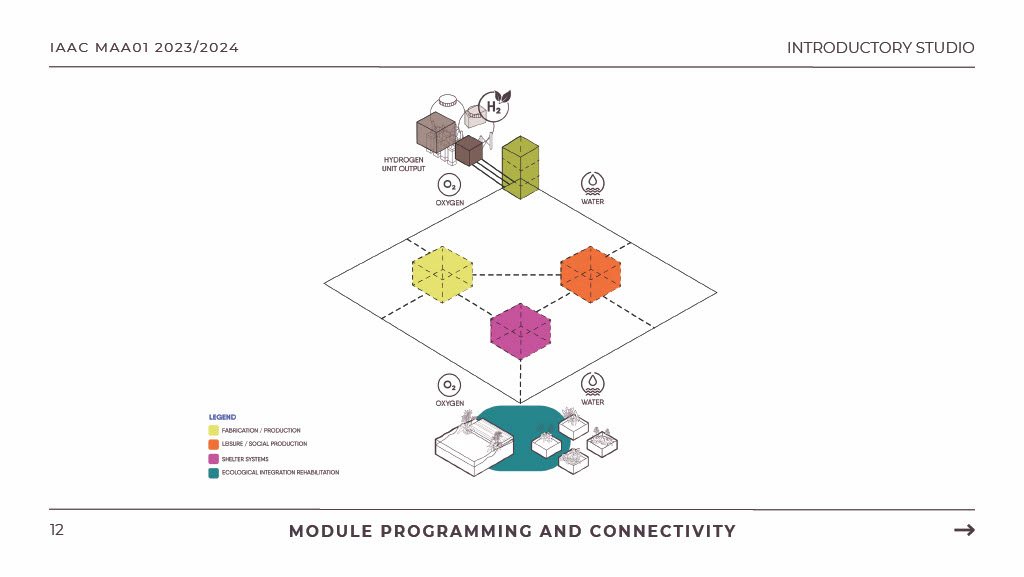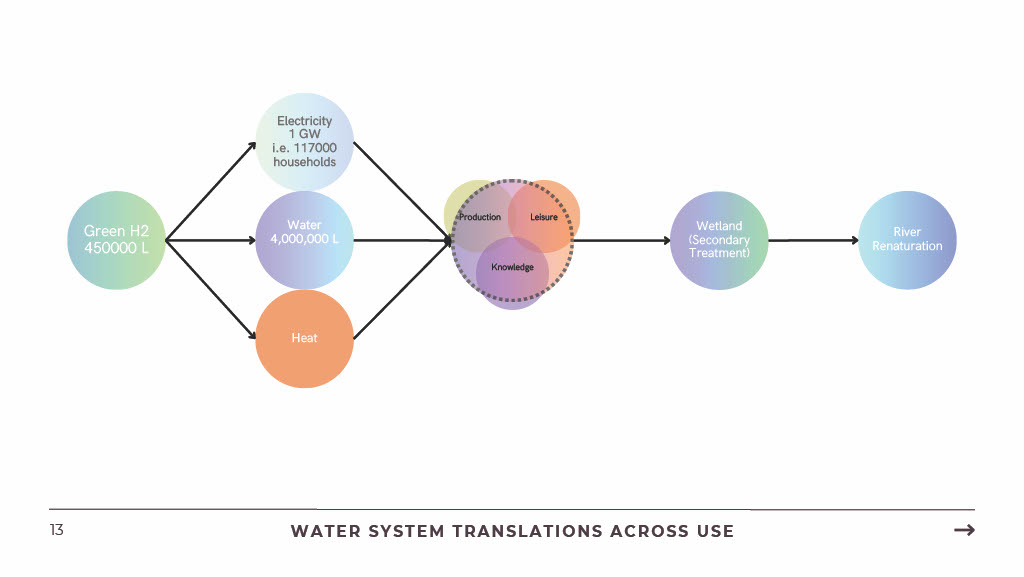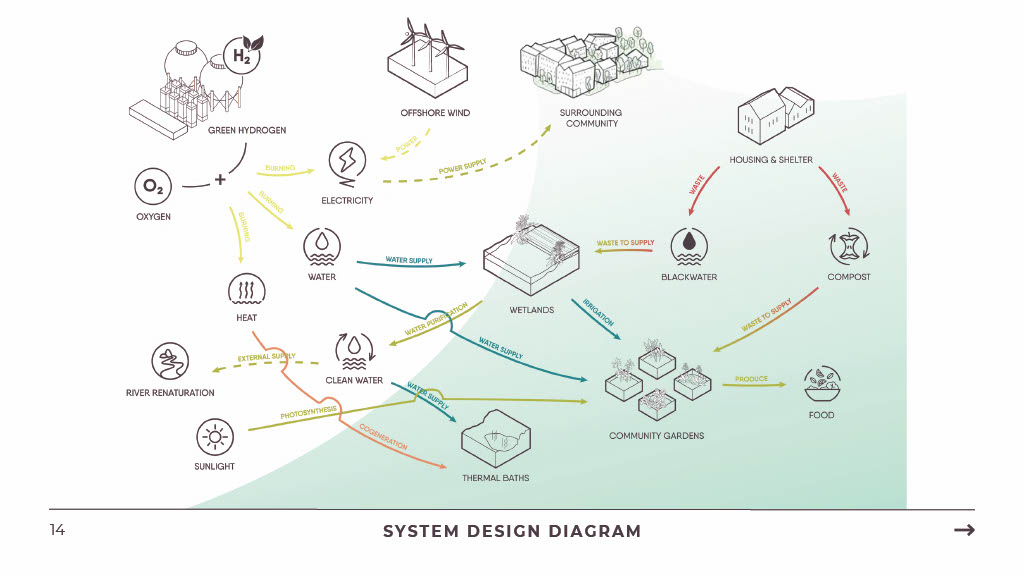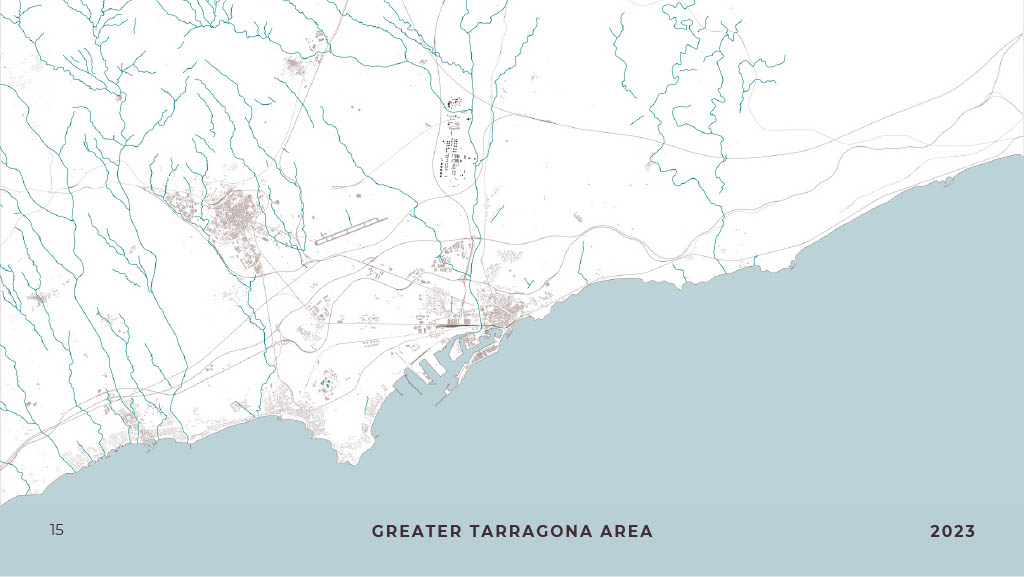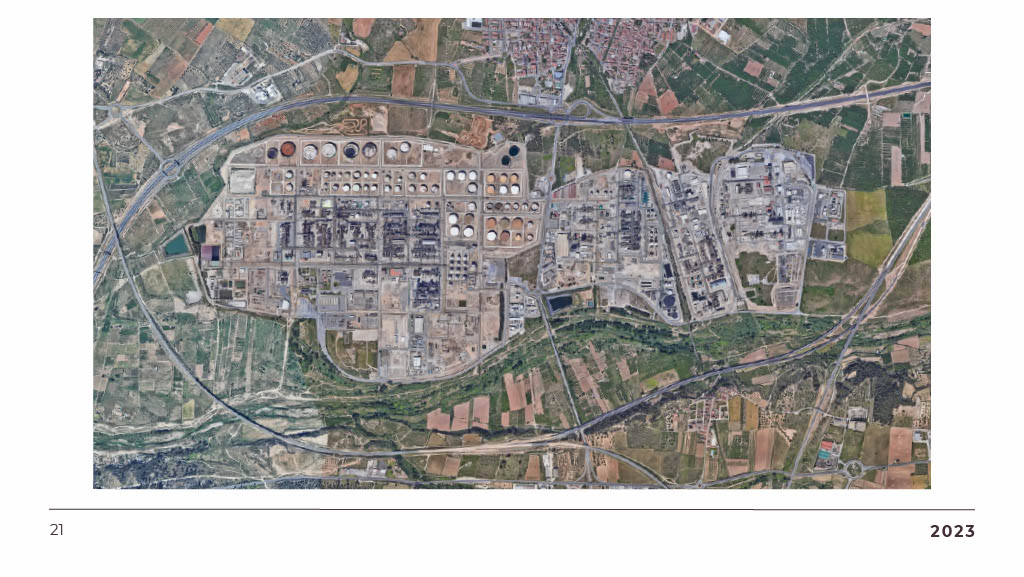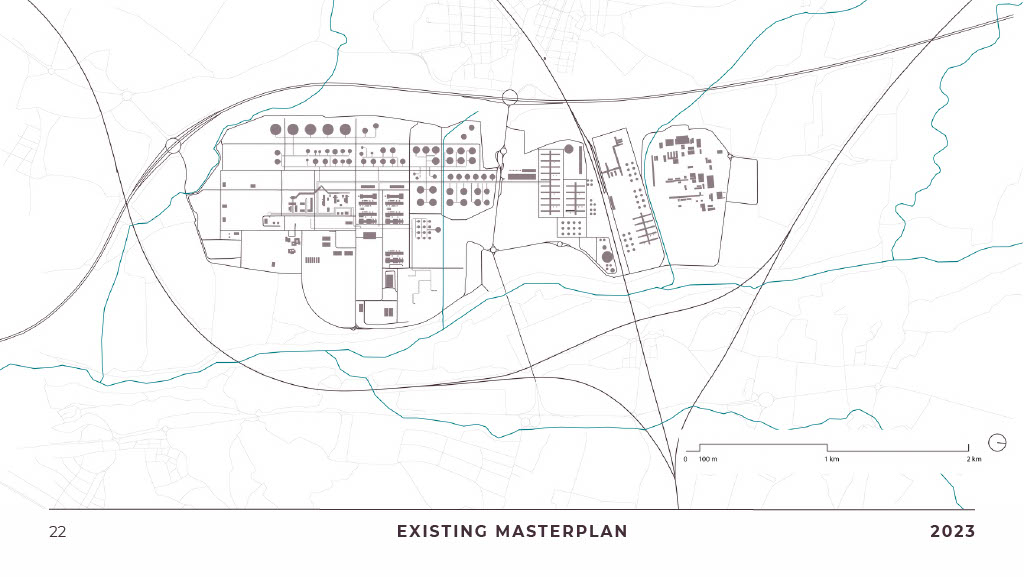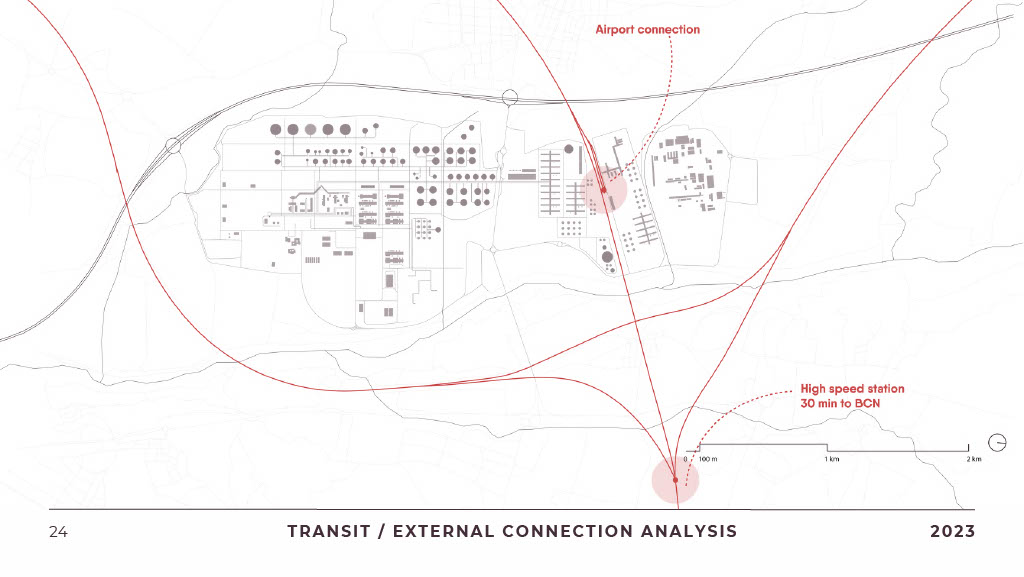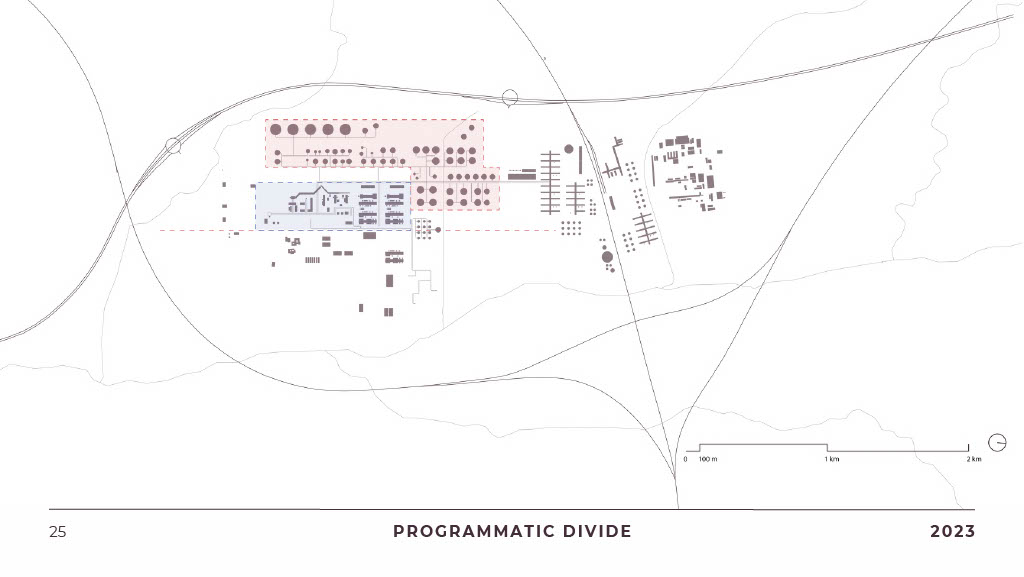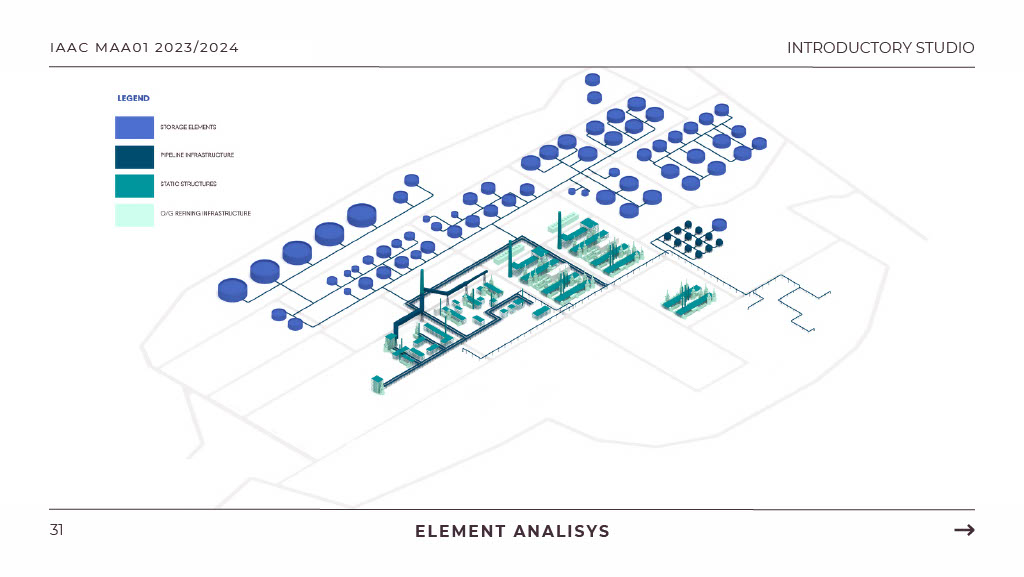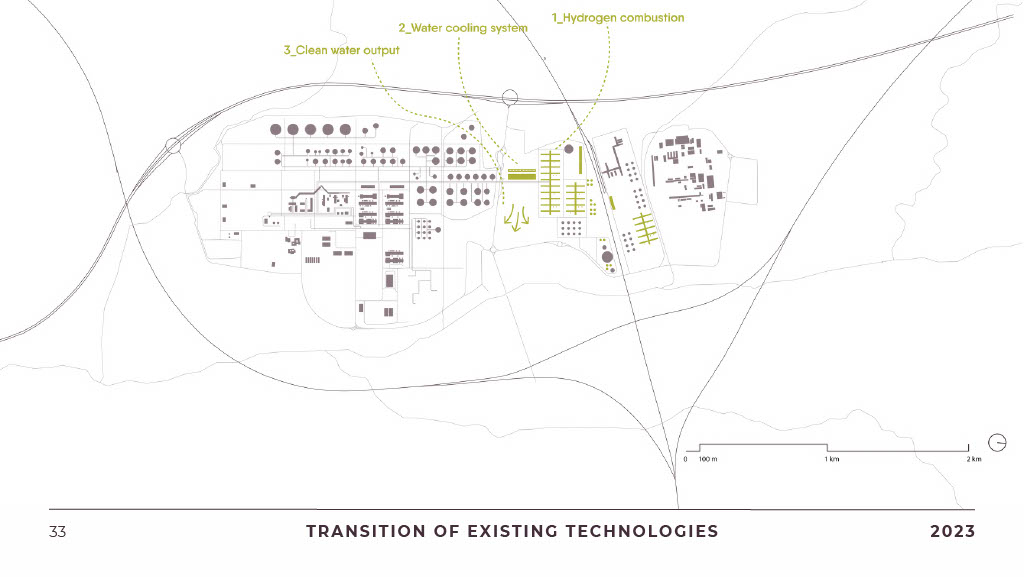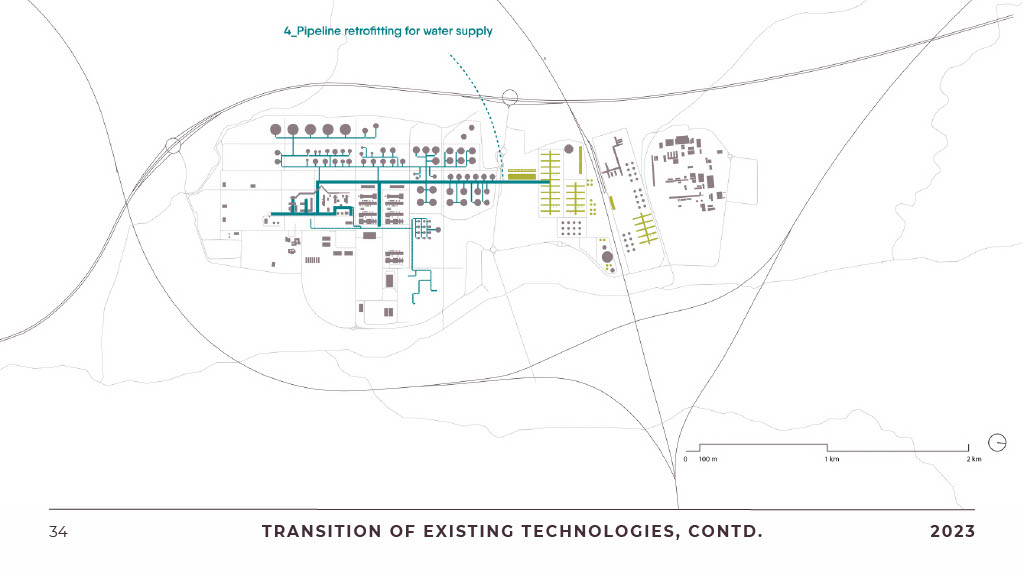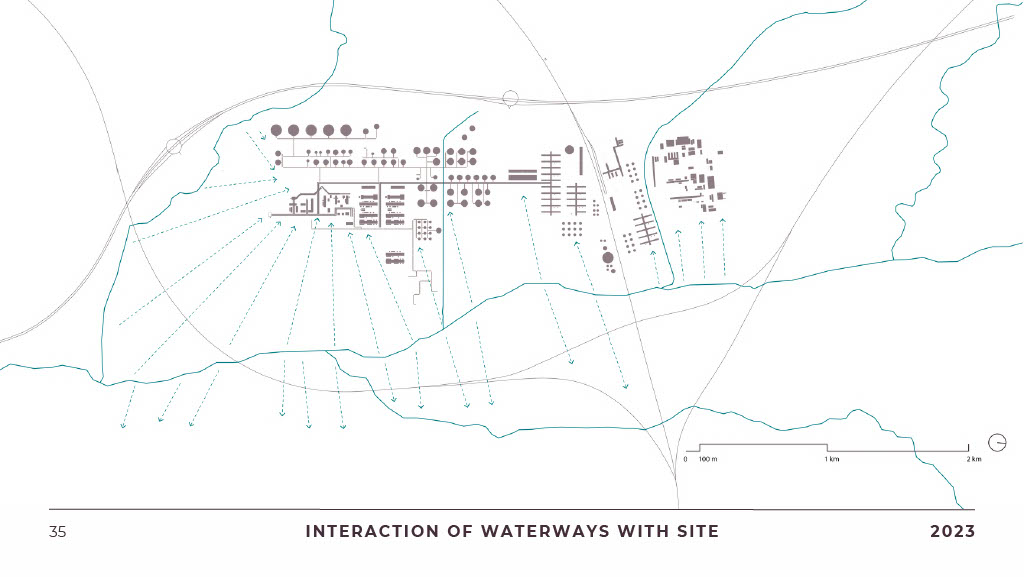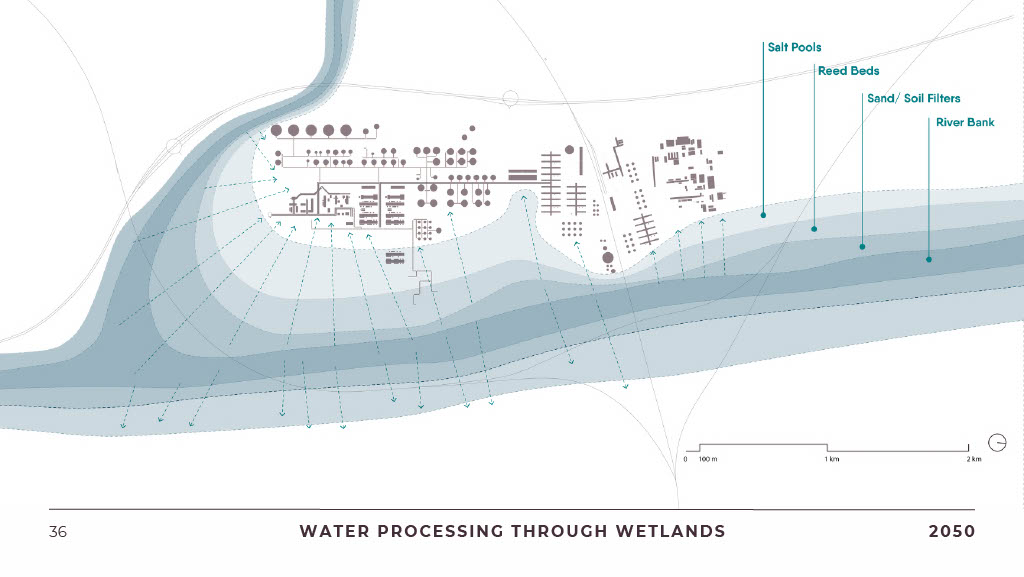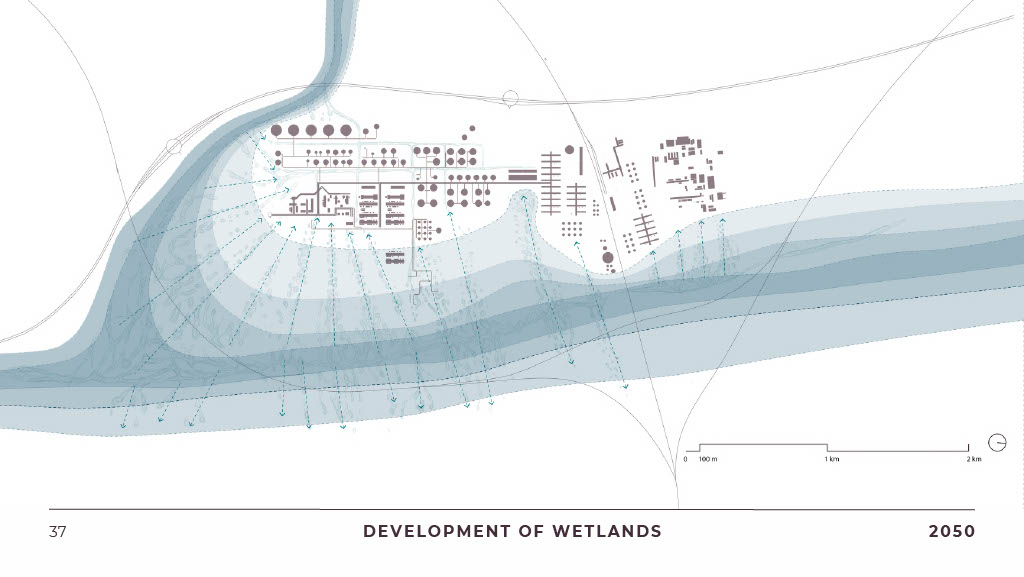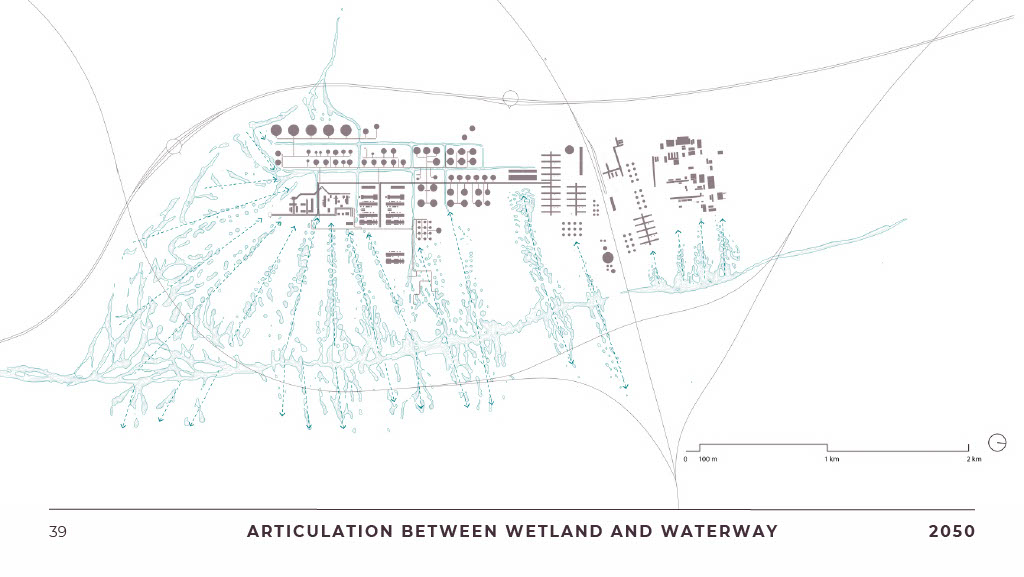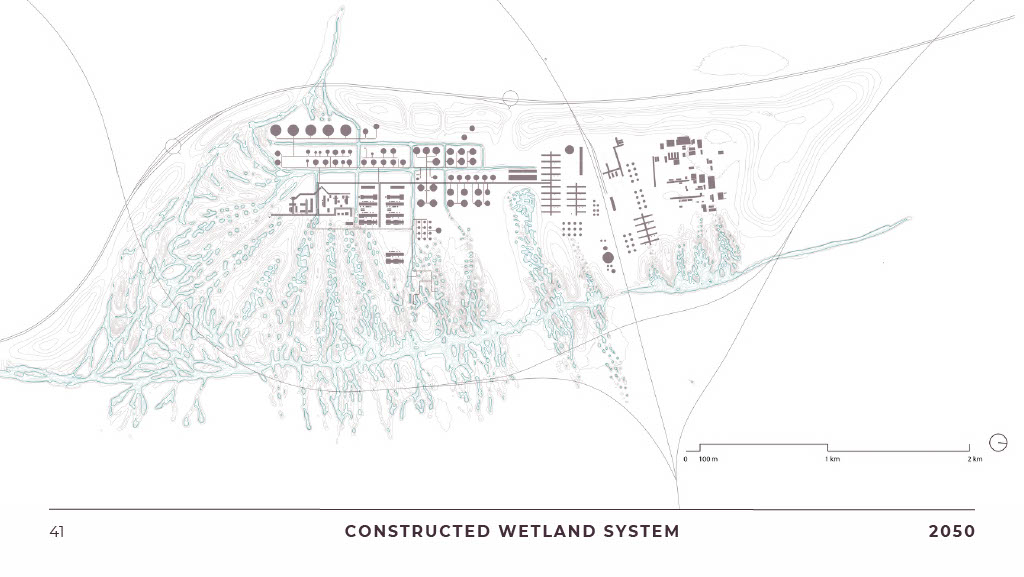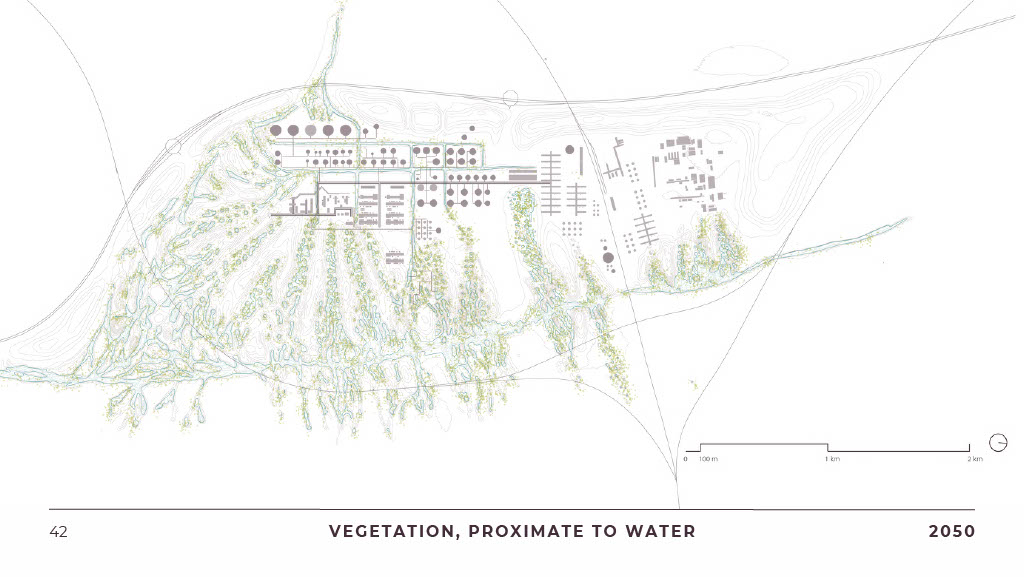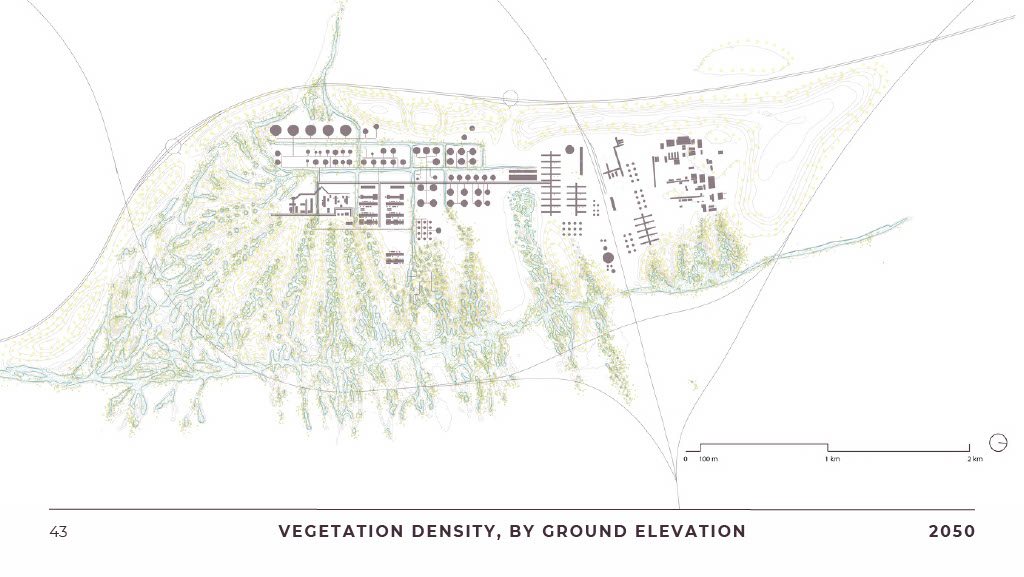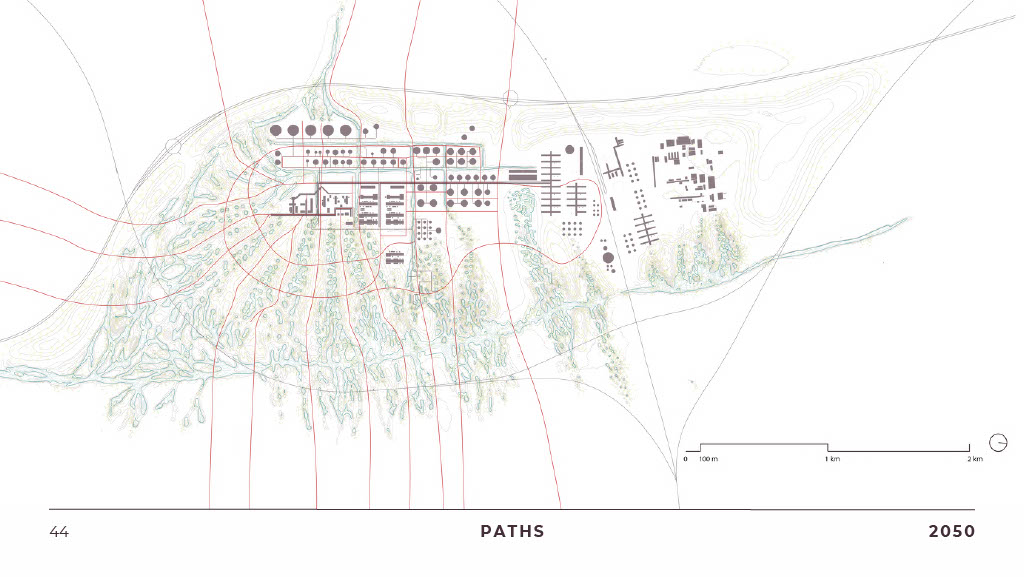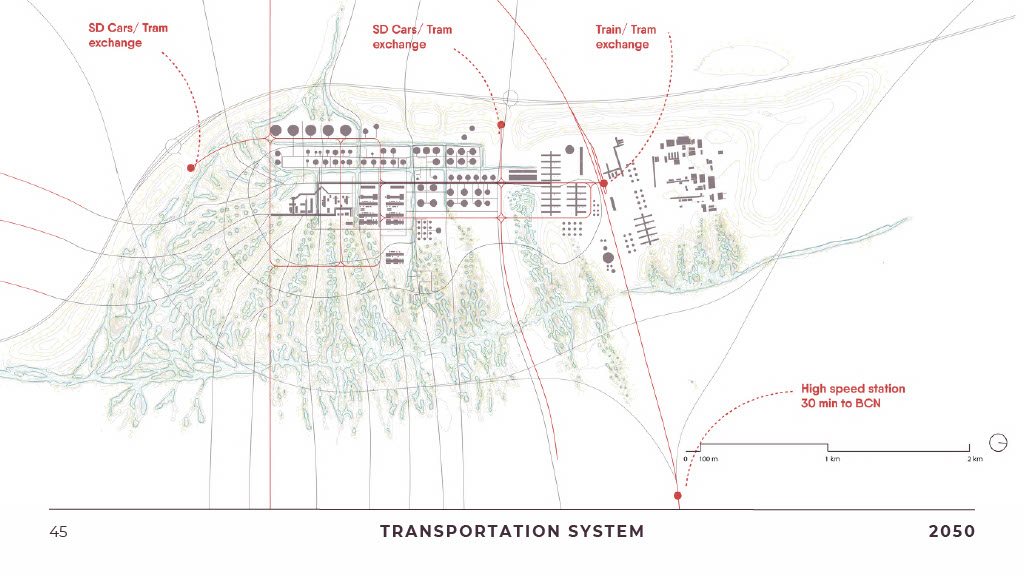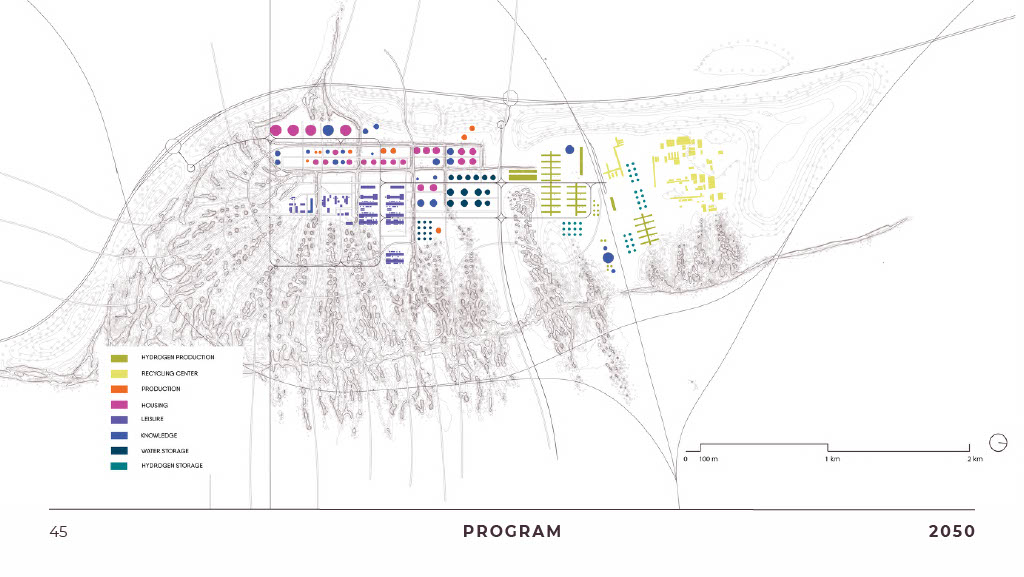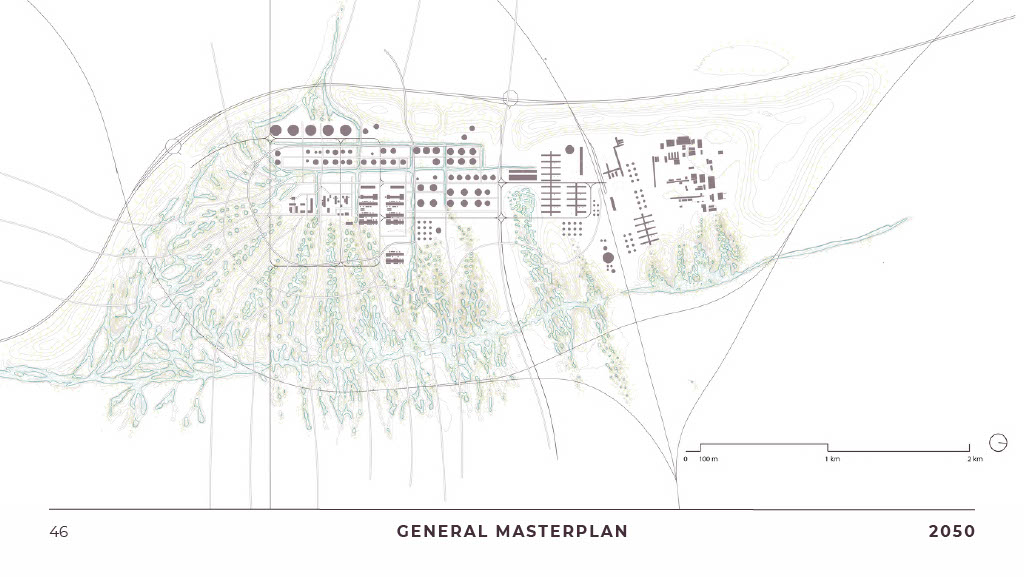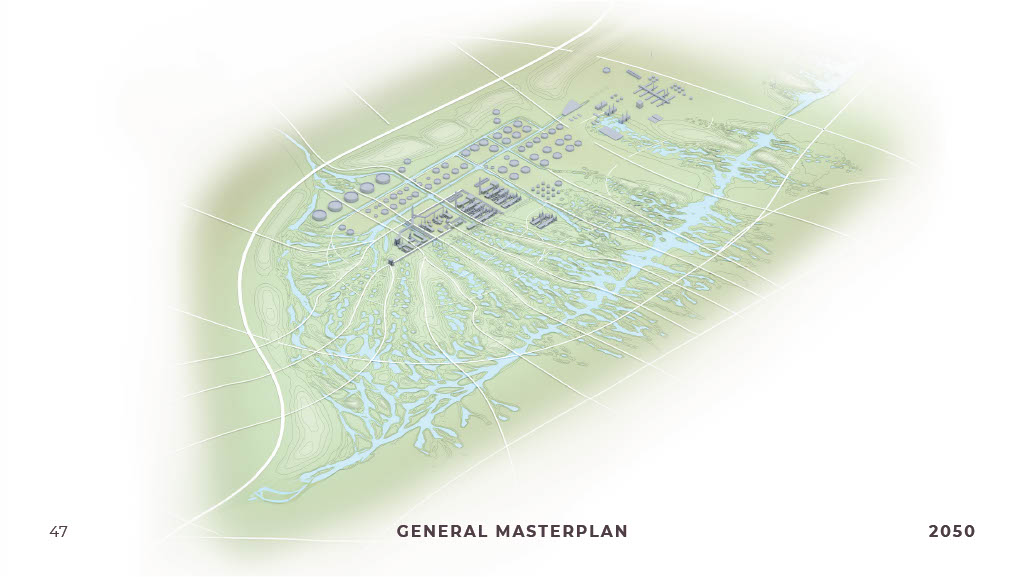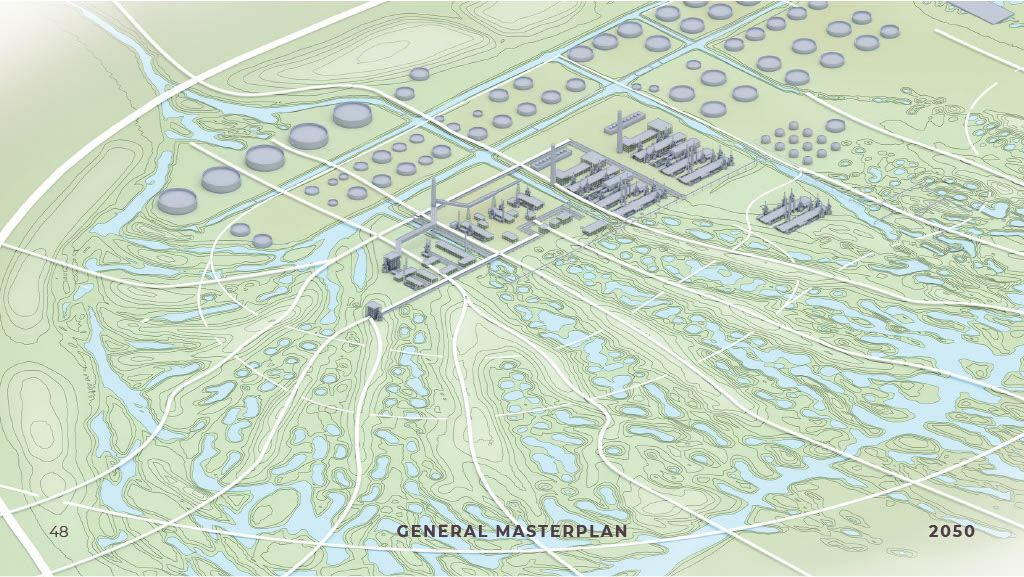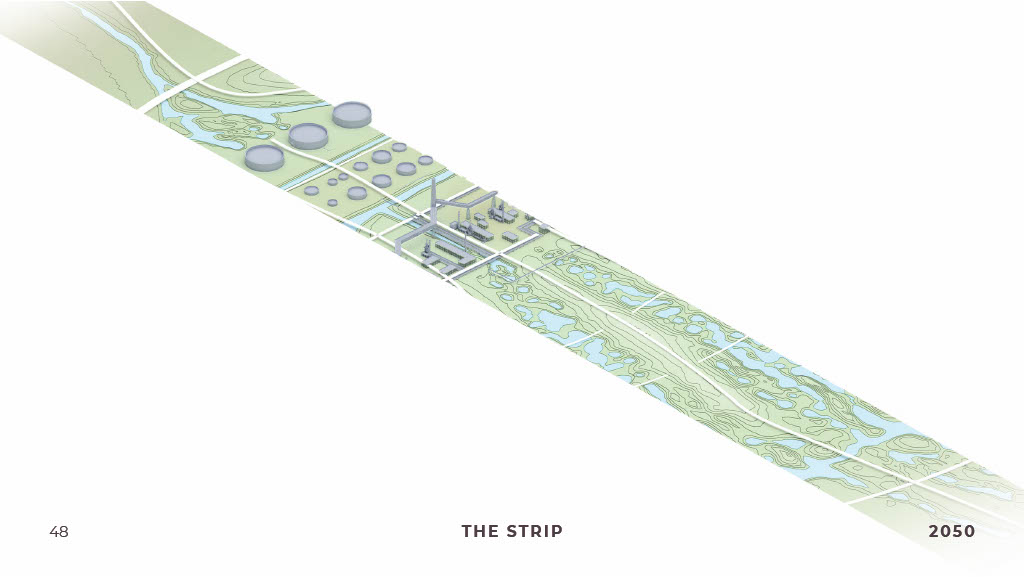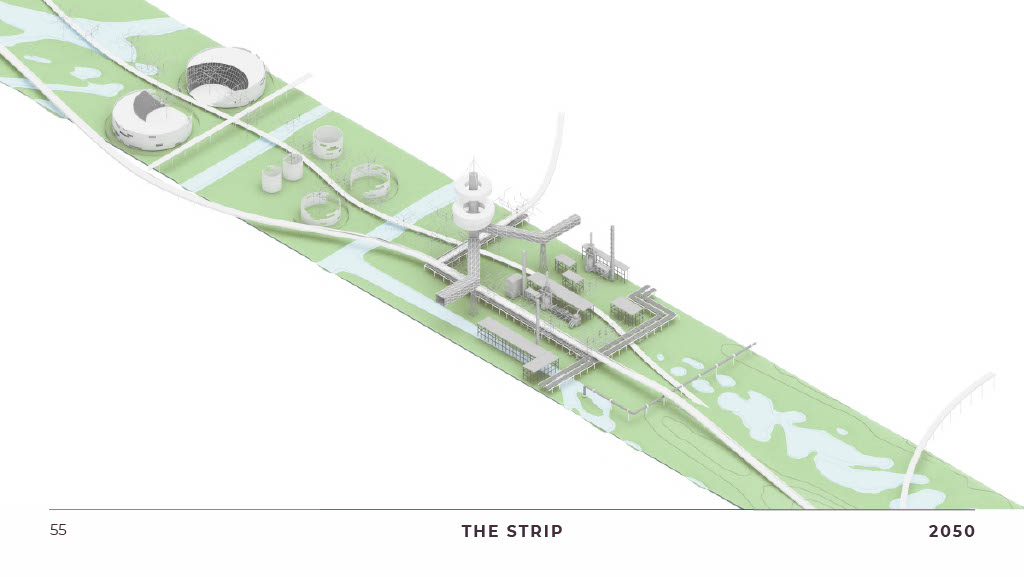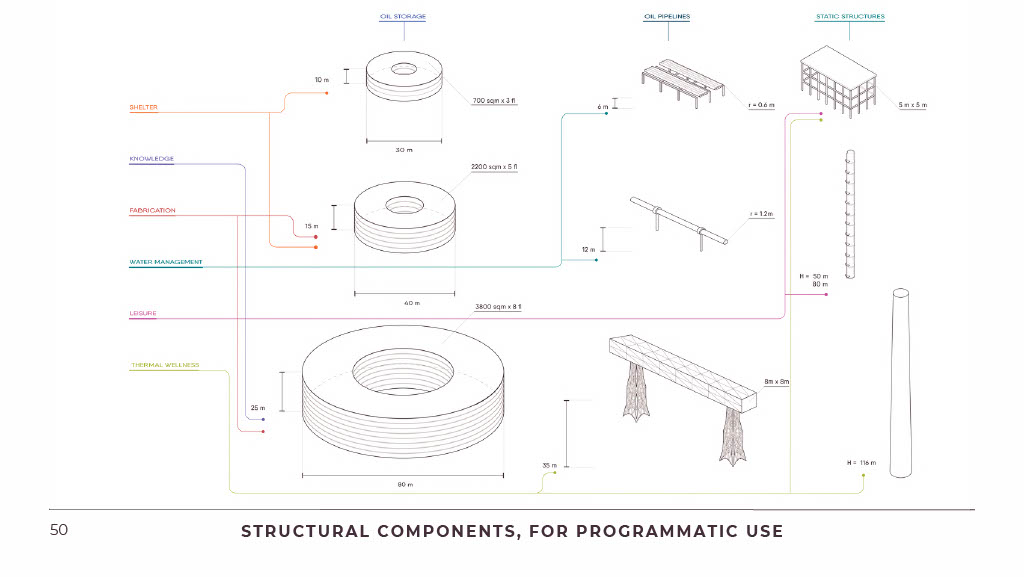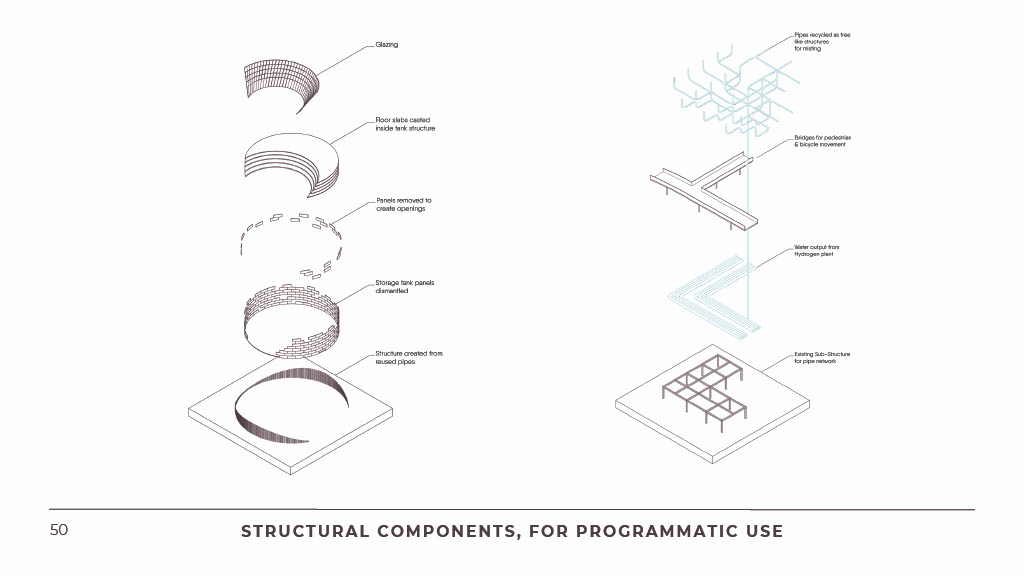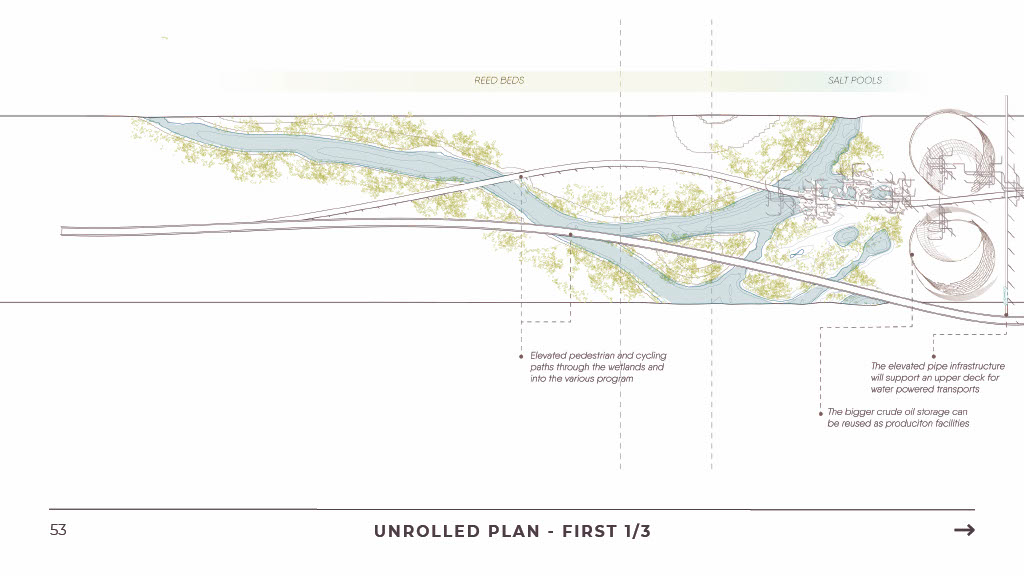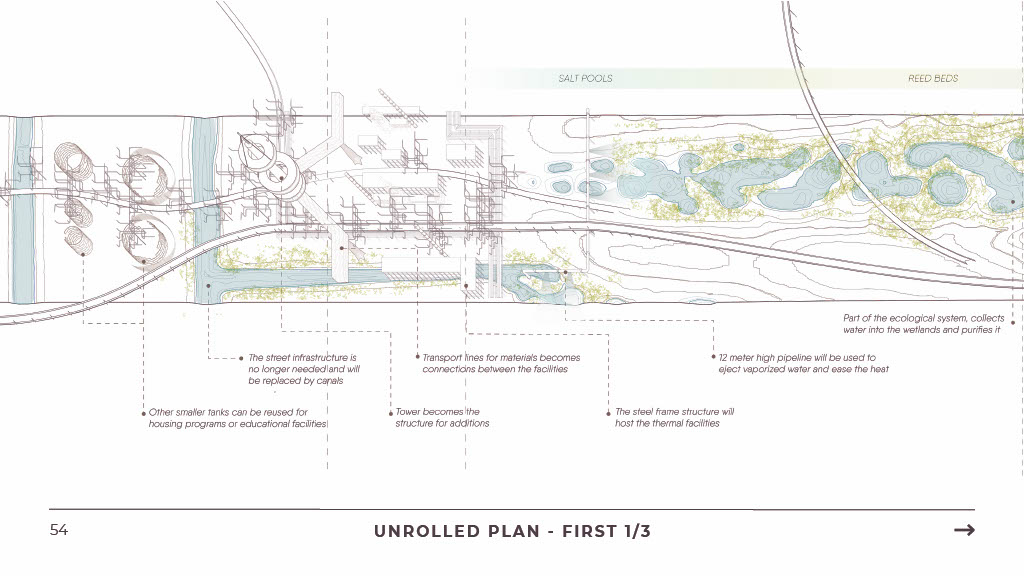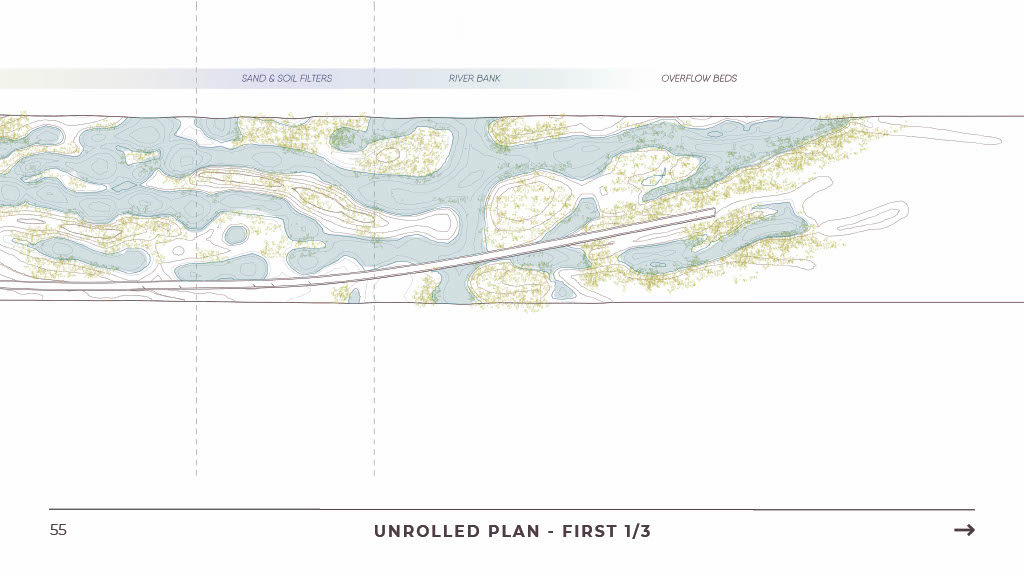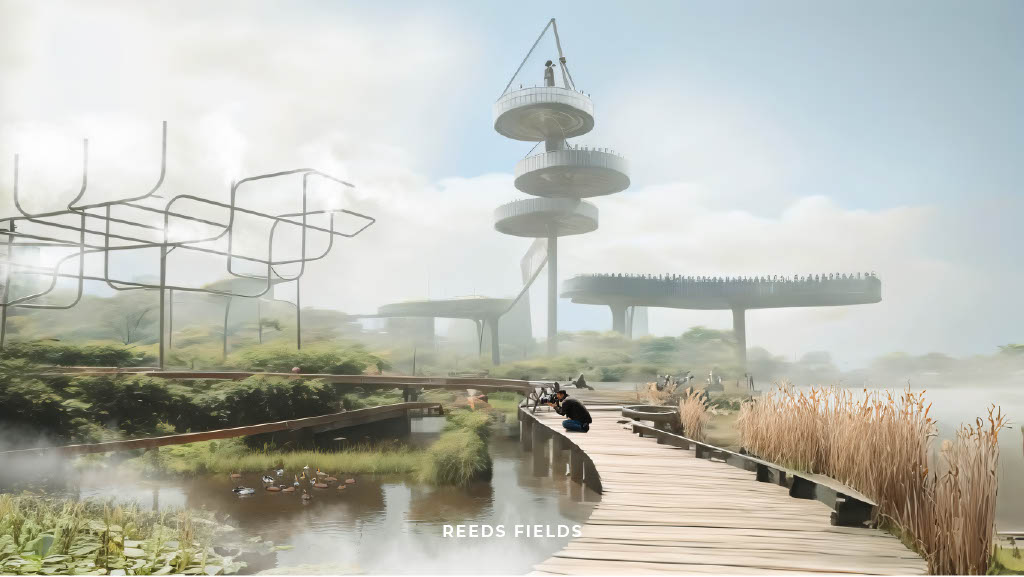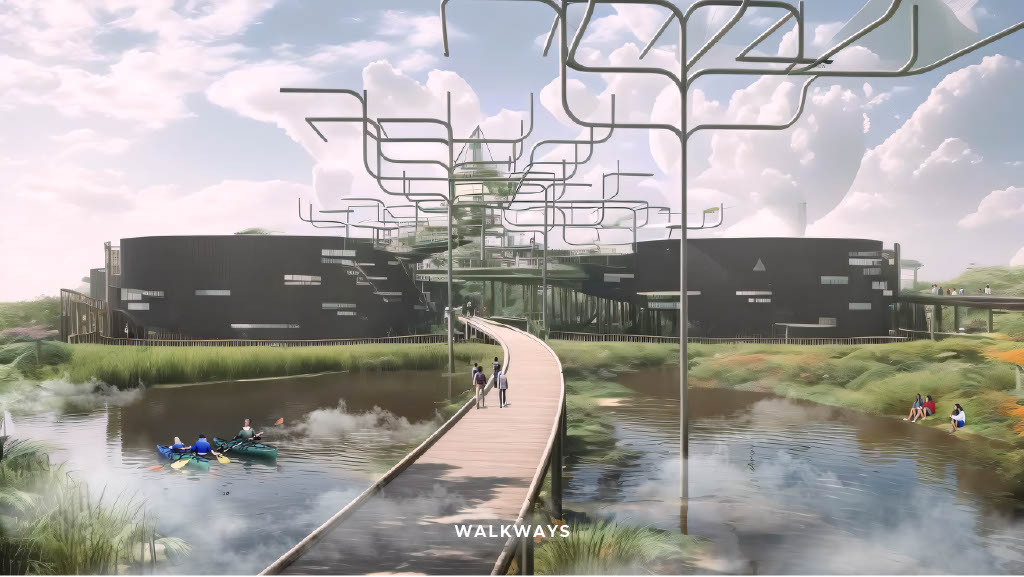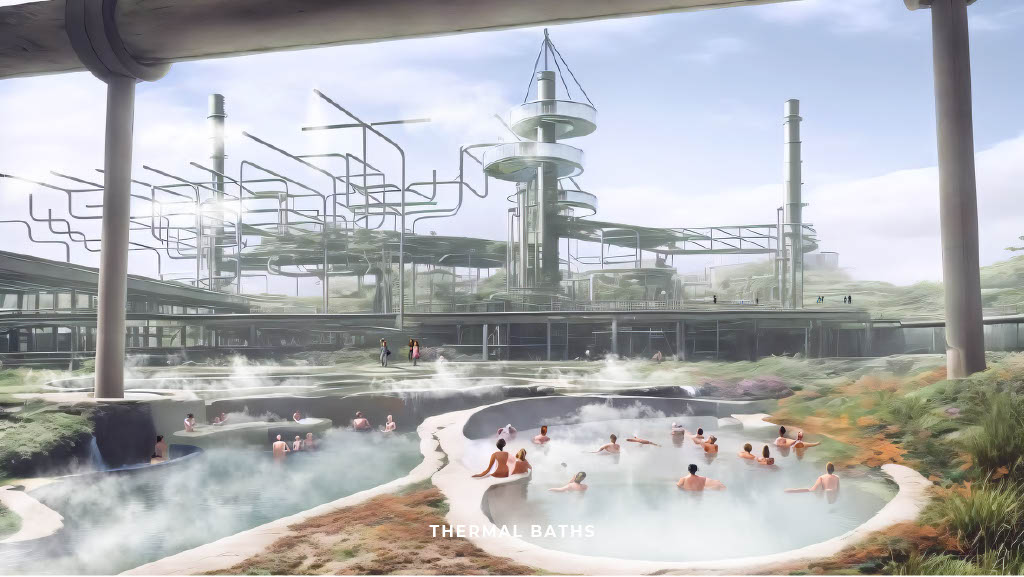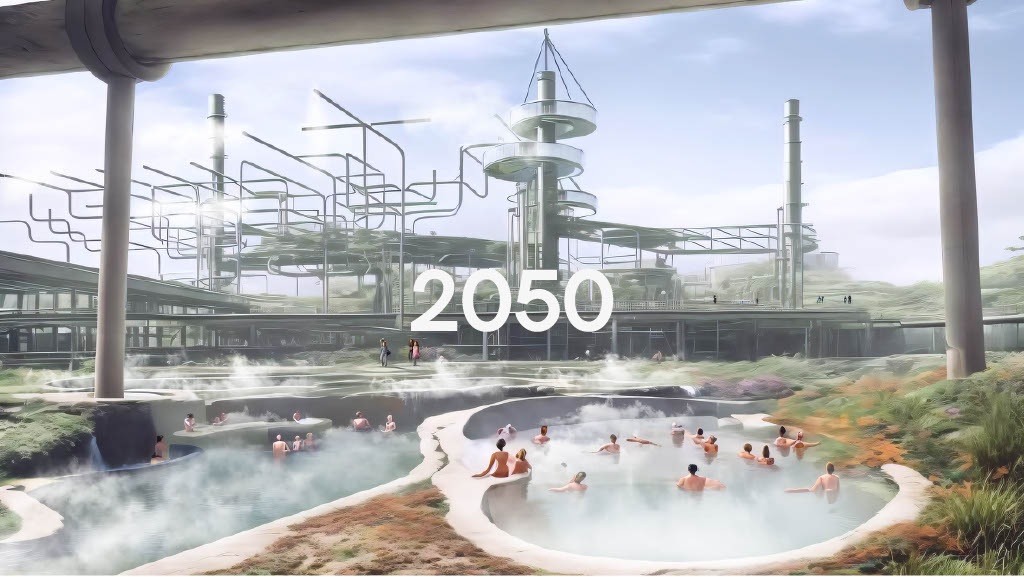AN OIL REFINERY BECOMES A PRODUCTION ECOLOGY AT THE END OF WORK
In the vibrant landscape of Tarragona in the year 2050, the once-thriving oil refinery has undergone a remarkable metamorphosis, emerging as a beacon of innovation and sustainability in a world shaped by a post-work society. What was once a hub of industrial production now stands as a testament to adaptive transformation, evolving into a dynamic production ecology. Instead of churning out traditional fossil fuels, this facility has embraced cutting-edge technologies and regenerative practices. Here, the focus is not solely on output but on a harmonious integration of ecological spaces, renewable energy sources, and cultivating organic resources to sustainably meet the needs of the community. Automated systems and AI-driven processes hum in the background, efficiently managing this harmonious system. This reimagined refinery serves as a catalyst for ecological balance and the world of post-work.
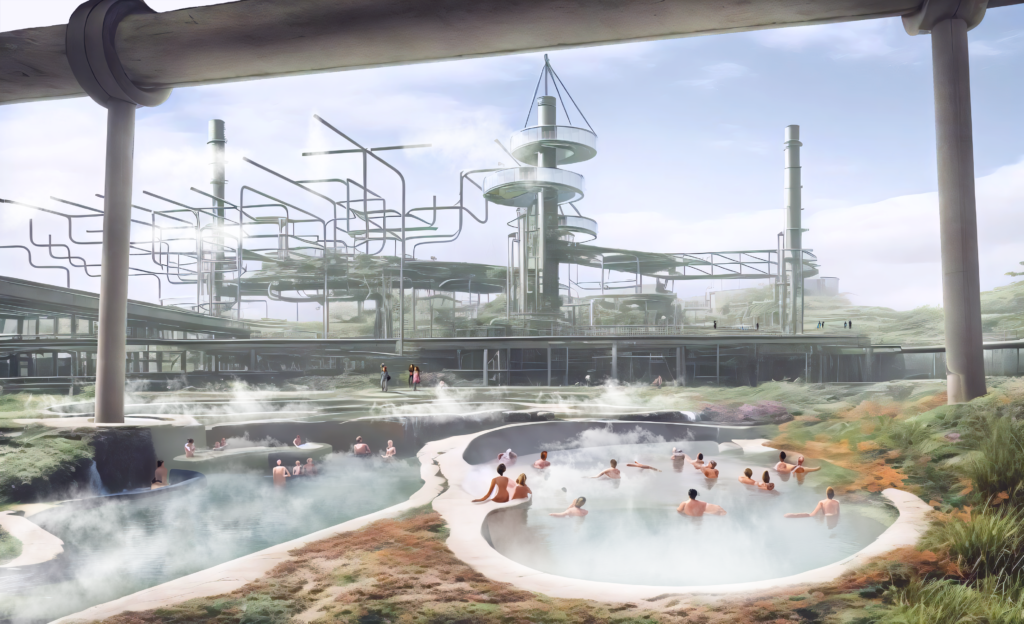
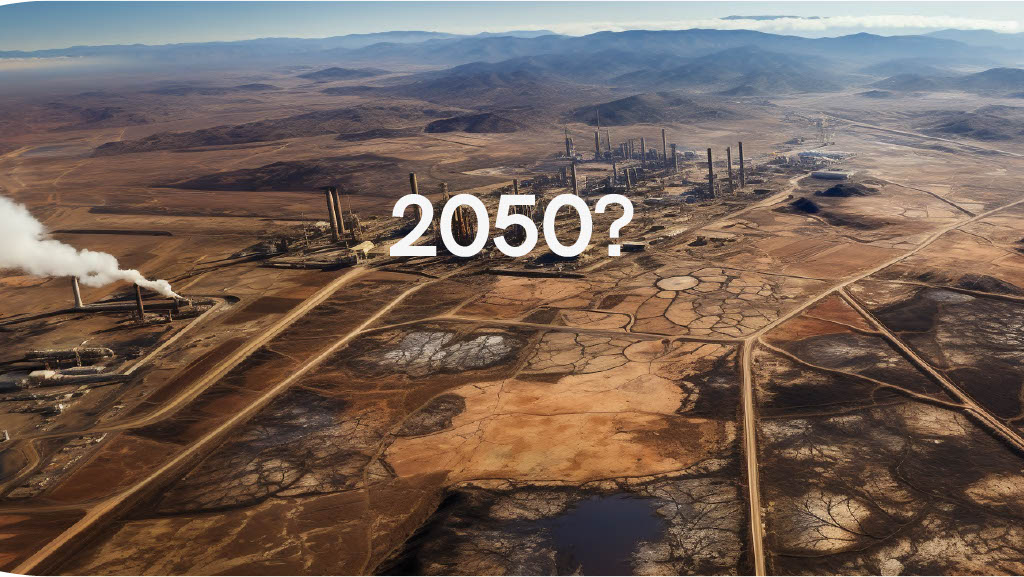
But first, we must look at where we are, and where we are going.
According to the European Environment Agency, the largest increase in the number of drought events in Europe is projected for Spain, resulting in an increased desertification hazard.
In addition, future climate projections indicate a predominant shift towards a precipitation regime of higher inter-annual variability, spatially more heterogeneous, of higher intensity and greater extremes.
Although the change tendencies throughout the 21st century present notable discrepancies among the global models, all of them, coincide in a significant reduction of total annual precipitation, which is maximum in spring and somewhat lower in summer.
